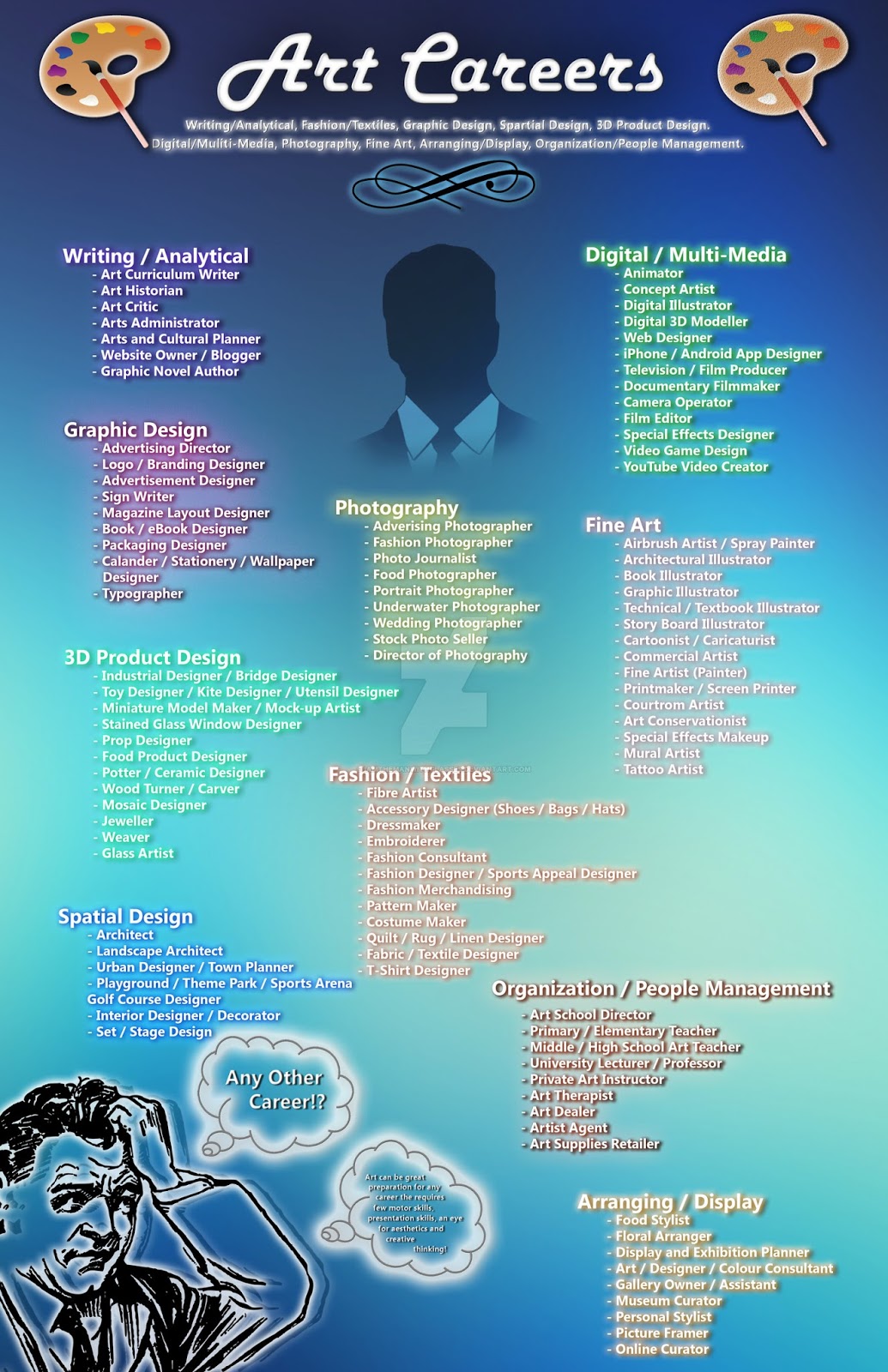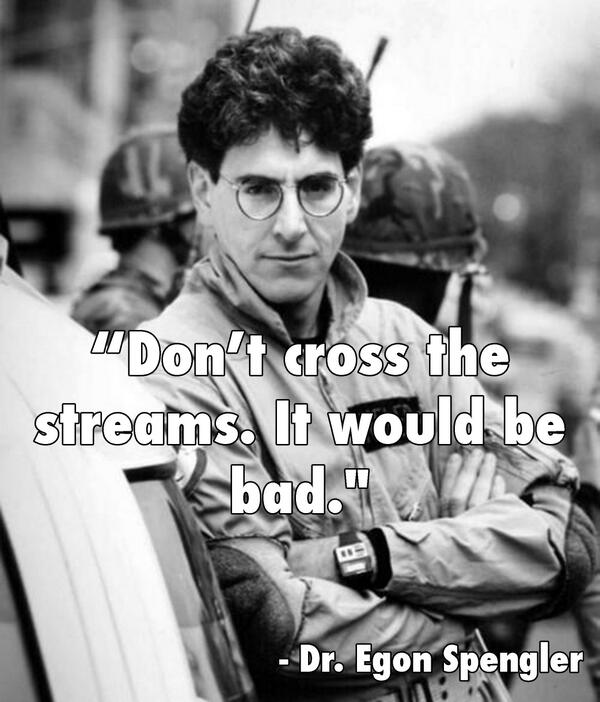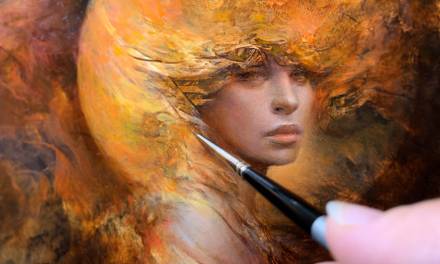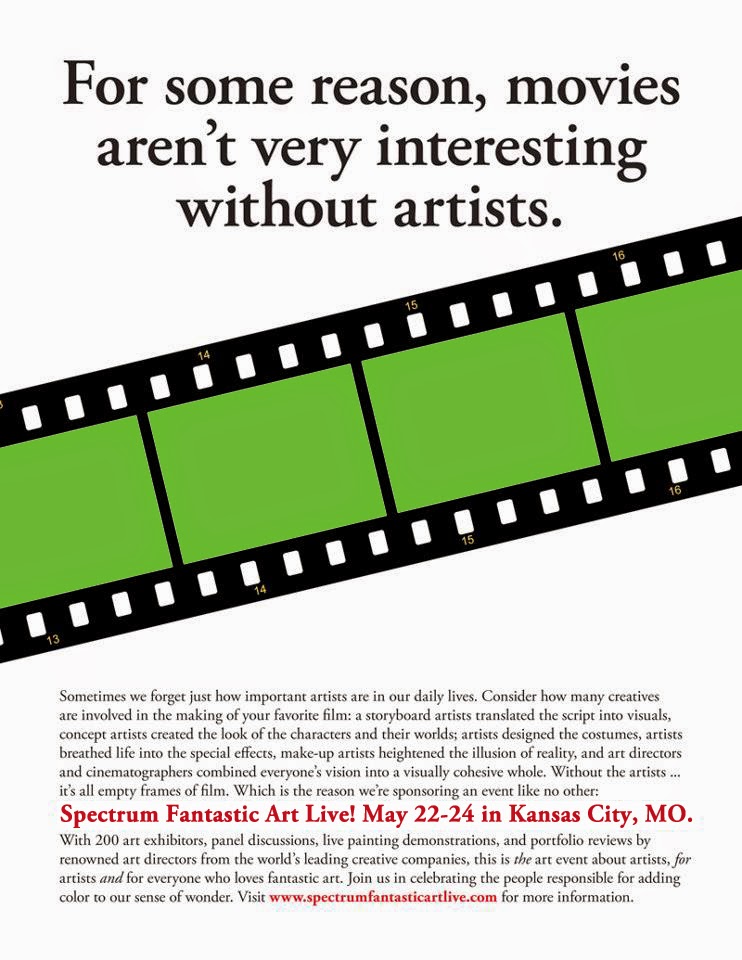Summer is officially over; students are back in school and working artists are back at the drawing board or Wacom, as the case may be (if they ever left). In the past months I’ve met with a number of artists, young and seasoned, at various events and sat on several arts panels at the World Science Fiction Convention in August so I thought I’d talk about a very few of the career topics that have been discussed. Much will probably be familiar to long-time MC readers, but there are always new people embarking on their careers every year and some of these observations may be fresh and helpful. I’ll do my best to keep it brief.
- The thing to always keep in mind is that, unless you’re strictly a hobbyist, art is (or will be) your business and has to be treated as one. Whether you are an illustrator, comics artist, sculptor, or gallery painter, every single aspect of your career requires management and attention. As an entrepreneur, promotion, bookkeeping, marketplace analysis, scheduling, contracts, and research—among a laundry list of other things—are all just as important as actually creating your art. If you’re in college, a Minor in Business would be great; if you’re not, classes at a junior college would help, too. And, of course, you can go the self-help route by taking workshops, attending art business-focused lectures and panels at conventions (remembering to take copious notes), or reading various books (like The Business of Being an Artist by Daniel Grant).
- As an Art Entrepreneur, the simple reality is that you are—and always will be—in constant competition (of various sorts) with other artists for work and attention. And considering the far reach of technology, your competition now comes not just from others in your city or state/province or country, but from around the world. Which means you not only have to produce good work, regularly, but you also have to hustle to keep both your clients and your fans interested and engaged. Everything goes in cycles and popularity, even for the biggest names, has a shelf-life. As such, it’s imperative that you remain “current,” that you are constantly learning, improving, and reaching out, that you’re always upping your game. Relying only on successful solutions from the past—including subjects, compositions, palettes, and characters (sitting on your laurels, as it were)—eventually bores you. And if you are bored, so is your audience. Your style, the originality of your “voice” and your solutions to assignments, is what creates the demand for what you do. You must maintain the ability to surprise, excite, and challenge viewers—and that includes art directors.
- It’s not a perfect world: unless you were born independently wealthy—or you have a supportive significant other with a well-paying career (with healthcare) which affords you the luxury to pick and choose—you will sometimes have to take jobs that aren’t fun or exciting. Sometimes you’ll take work from a client who makes you grind your teeth. No one starts out at the top and it’s almost a certainty that throughout your career you will take some assignments for money rather than passion. Some of the people you work for will be giant boobs…or worse. But every experience, good or bad, is valuable; every problem you solve, every hurdle you overcome, every artwork you create, will be useful in the future. These are the building blocks of an art career and, as Nietzsche said, “That which does not kill us makes us stronger.” (Oh sure, the answering quote from wags is, “WTF did Nietzsche know?!?” but there’s still truth in what Fred said.) It’s not a failing to take work to pay the bills; the failing is in not doing your best regardless of the job. You can’t buy experience: approach every assignment as a learning opportunity and use those experiences to help you create more expressive personal works later.
- Don’t put all your eggs in one basket. There are many career paths in the arts and remaining flexible might open doors when others close. I covered this topic earlier in a post entitled “Revenue Streams” and suggest anyone interested give it a read.
- It doesn’t matter how you choose to create. It really doesn’t. Use traditional tools and methodology as much as you want. But…be prepared to deliver your commercial assignments to clients as digital files. The computer isn’t your nemesis, it’s a vital friend: you don’t have to create with it if you don’t want to, but certainly learn how to use it. Not only to deliver your files properly to clients, but to archive your work for future use. (And, psst: if you learn Photoshop you’ll be able to make corrections to traditionally-created works for your art director without repainting. Ask Greg Manchess sometime about the client who asked him to reduce a figure in one of his oils by 2%. Yesh.)
- Manage your social media presence. Wisely. And don’t—don’t, don’t, don’t!—get into fights on the internet. You’re creating a digital profile accessible by all and anything negative you post about a person or company (even if “deleted” at some point: there’s no such thing in cyberspace) can come back to haunt you weeks, months, or even years down the line. (Yeah, I’ve written a little bit about this subject, too, awhile back.) If you absolutely can’t help telling the world your views on politics, religion, or race, if you must share the most intimate details about your relationships, health, or moods…create a personal page that is distinctly separate from your professional page and don’t let the content cross from one to the other. Ever. Remember what Egon said.
- There are no guarantees, no sure things, and no absolutes in the arts. People with MFAs from the finest universities or who take multiple workshops with today’s best artists can—and often do—struggle to make a living even as they watch the careers of peers (or self-taught illustrators or painters) take off like rockets. What works for one artist doesn’t always work for another and vice versa. There’s no super secret, there’s no magic formula, for success; there’s no Oz where the Great & Powerful will bestow upon you a heart, courage, brains, or…a career. Anyone who tries to convince you otherwise is either naive or a liar. There’s no such thing as “entitlement” in the arts. And though you have no control whatsoever over the marketplace or the public’s tastes, you do have a choice as to how you address both. You do control how hard you work at improving your skills, in how focused you are on achieving your goals. You control how much you learn from others and in what you learn from your successes and your failures. So much of what happens rests squarely on your shoulders (helped along with a good dollop of luck): you’re not given a career, you make one.
This is very scattershot, I know. Panels are usually about 50 minutes and though they frequently get derailed by one thing or another, there are almost always a few insights that emerge. They should never be considered the end of a conversation, but rather the beginning.
And, considering the subject, this is another chance to again suggest young artists watch Anthony Moorman’s and Woody Hinton’s documentary, Making It, for an honest examination of what it takes to be an artist these days. You’ll be glad you did.









No gospel in the art world, it would seem.
Sadly…nope. Because in the commercial arena things are always changing. But with a good foundation, hard work, and flexible outlook, success is always possible.
Excellent article… applies to music and chemistry as well… if your ship doesn't come in… row out and meet it!
Nice article! Too bad someone is dropping some spam in the comments!